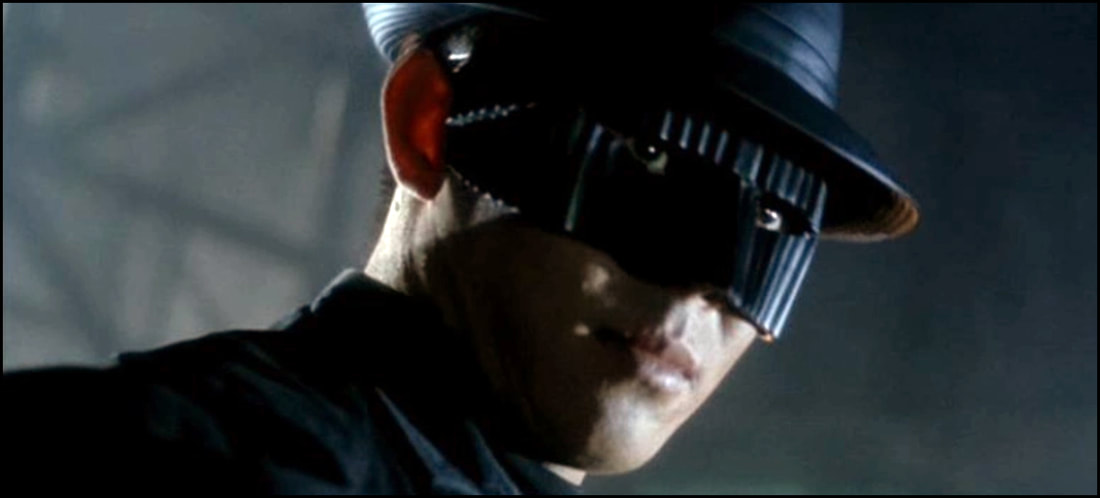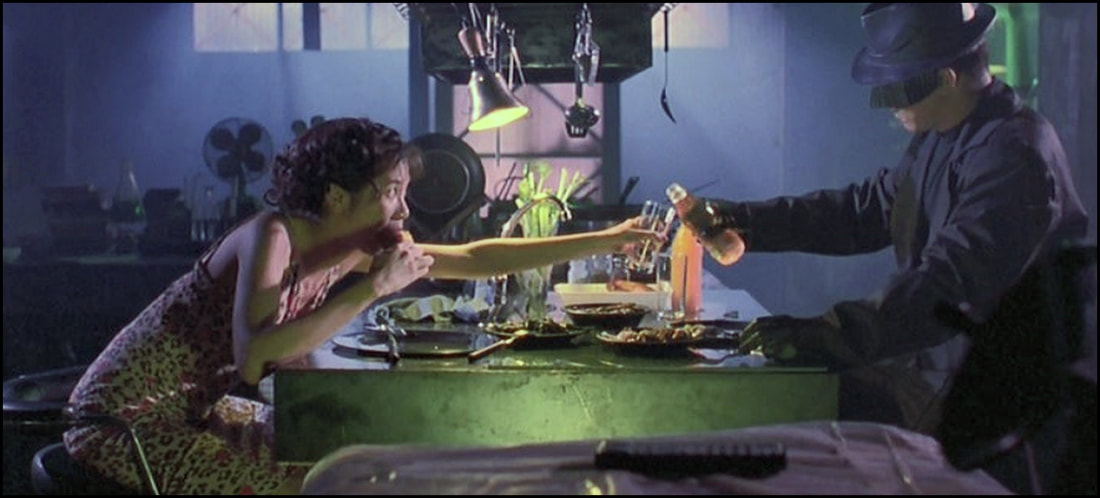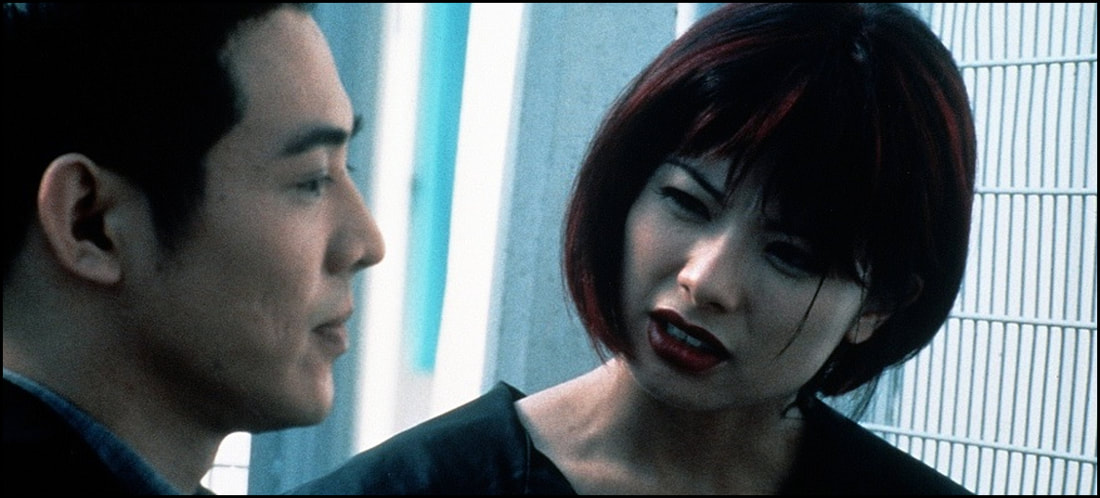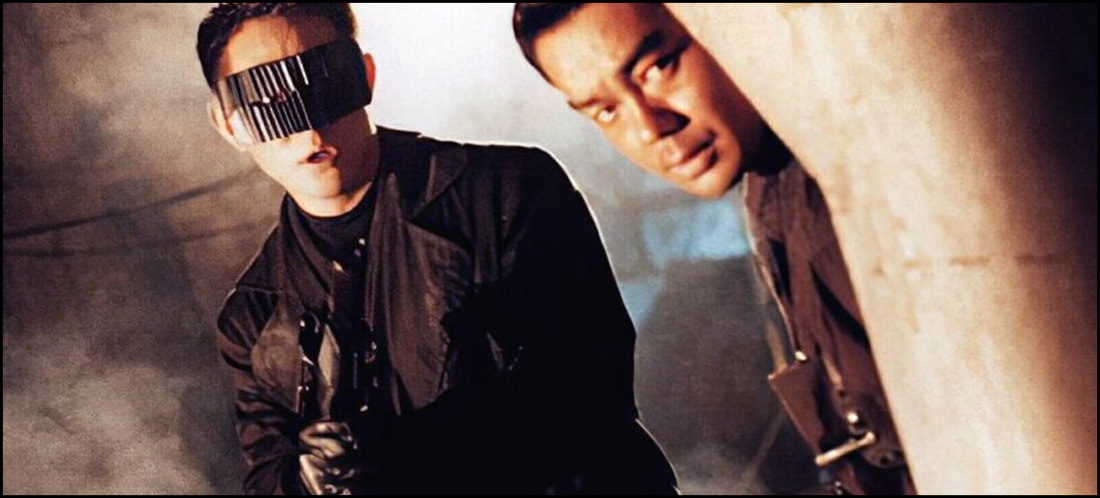Now, I know what you’re thinking: somehow, we culturally owe a debt to Marvel Entertainment from ramping them up into so many bigger-than-life experiences, right? Taking the medium from panels printed on cheap paper stock and elevating it to modern day Shakespeare? Catapulting the entire entertainment industry to unforeseen heights and giving folks who relish cosplay a whole new second career to make a name for themselves?
Well … yes and no.
You see, even 1978’s Superman: The Movie or 1989’s Batman could be considered alongside anything Marvel has done since it emerged as ‘the contender’ on the cinematic scene. My point in all of this is that – more often than not – comic book films of an earlier age were only reasonably budgeted affairs and not high-priced magnum opuses, ones crafted with an identity that perhaps meant something to those long-time comic book readers and mainstream audiences. I’d argue that the aforementioned Superman and Batman were exceptions to the rule and far from the norm at the box office. Presently, Marvel seems to be proverbially lost ‘in the weeds,’ putting out screen and TV fare that barely (if at all) resembles the source material it derives from; and DC still can’t seem to figure out how to tie its spandex shoes. If you must, then hate the simpler stuff like Hero At Large (1980), The Rocketeer (1991), The Phantom (1996), Steel (1997), or Punisher: War Zone (2008); yet projects like this still get made and some even earn cult audiences because the feel closer in tone to what regular folks might want from a comic book adaptation.
For that matter, I think it’s safe to throw a little something-something like Black Mask (1996) into the mix. From what I understand, the theatrical film is an adaptation based on Chinese-language comic from 1992; and it stars martial artist and box office sensation Jet Li in the role of a renegade mutant (of sorts) who feels no pain or remorse thanks to genetic engineering by some shadowy government agency. However, when these super soldiers somehow turn against their makers, the powers that be sought to have them swiftly and justly eradicated. Escaping the onslaught, Li takes up a life of solitude until he learns that fellow agents survived and are conspiring with forces outside of China to potentially overthrow the system … an act he cannot allow.
(NOTE: The following review will contain minor spoilers necessary solely for the discussion of plot and/or characters. If you’re the type of reader who prefers a review entirely spoiler-free, then I’d encourage you to skip down to the last few paragraphs for the final assessment. If, however, you’re accepting of a few modest hints at ‘things to come,’ then read on …)
From the film’s IMDB.com page citation:
“A survivor of a supersoldier project must fight his former comrades as a masked hero.”
To his credit, director Daniel Lee makes the most of his two greatest assets: Jet Li and his leading lady, Karen Mok. And I’ll even give him props for some of what he did by adding Ching Wan Lau as a kinda/sorta mentor/sidekick with a bad attitude only weakened by his good heart.
The super-clandestine Project 701 sought to create the ultimate soldier for China, apparently stripping ordinary men and women of their pain receptors so that they could move relentlessly against any adversary on any battlefield. However, before the benefits of such a force could be weighed, the mysterious power brokers decided to shut the program down, opting to kill off these soldiers one-by-one in some grisly showdown. Those who survived went underground, seemingly intent upon seeking redemption at a time and place of their choosing … and, seriously, all of this happens in Black Mask’s opening credit sequence.
In fact, viewers will have to watch said credits closer than those of lesser films in order to capture all of the necessary backstory. Thankfully, there isn’t a great amount of detail, but anyone who misses the finer points might be a tad lost once ‘the rest of the story’ starts unfurling. Tsui Chik (played by Li) was one of these super soldiers, but outside of such government control the man has settled down to a kinder, gentler life as a big city librarian. Now content to spend his days entranced with the Dewey Decimal System and the assortment of odd players who fill out the remainder of the library’s staff, Tsui lives for nothing more than the escape of a good book.
However, some nefarious forces are set upon taking down the men and women of the greater Chinese drug cartels; and Tsui can’t help but insert himself into the fray only to help his best friend – police detective ‘Rock’ Shek Wai-Ho (Ching Wan Lau) – in uncovering the mastermind to such a plot as well as keeping his city and its residents safe from harm. Once Tsui realizes that his surviving ‘brothers and sisters’ of Project 701 have banded together and are instigating this crime wave for their own nefarious reasons (which apparently ties into destabilizing the Chinese political hierarchy), he decides that only he is capable of bringing an end to the bloodshed even at the expense of his own life.
Where Black Mask does add something to the equation is the insertion of a minor love interest: Tracy Lee (Karen Mok) is one of Tsui’s fellow librarians, and she’s a bit smitten with the quiet but sensitive outsider. Though the script never gives their pairing any great legitimacy, it becomes clear – Mask saves her life, and then she kinda/sorta returns the favor by helping him out of a tight spot – that the two maintain feelings for one another despite never quite consummating the relationship. As a result, they do spar verbally with one another; and this back-and-forth serves to give Mask something rarely seen in Superhero/Fantasies … namely a hint at the seminal ‘battle of the sexes.’
While such a narrative element is scarce, it arguably had its grounding in the Lois Lane and Clark Kent relationship as portrayed in Superman: The Movie (1978) and Superman II (1980). Our intrepid reporter Lane (the late Margot Kidder) seized a commanding presence easily out from under her milquetoast partner Kent (the late Christoper Reeve), embodying their constant tête-á-tête with dialogue not seen onscreen since the days when Katharine Hepburn and Spencer Tracy matched wits in such features as Woman Of The Year (1942), Keeper Of The Flame (1943), Adam’s Rib (1949), and Pat And Mike (1952). Though Mask lacks the gender backdrop as relevancy that made the Hepburn/Tracy pairings memorable, the Tsui/Tracy relationship has the same textual spine: somewhere deep inside, these two care not only for one another but also their respective places in this world, and they’ll unavoidably have to find some means to collaborate as only the best screen characters do.
Where Mask does insert a bit more stuffing as it relates to trials of the heart is with the inclusion of a suggested romantic past with Yeuk Laan (Françoise Yip). Trained in the ways of soldiering by Tsui, Yeuk now finds herself at odds spiritually and emotionally with her teacher. When her efforts to bring him back into the fold alongside the other survivors of Project 701 fails, she’s given the unfortunate task of assassinating him so that the group can achieve their goal unfettered. This requires her to ignore both her feelings for the man as well as his insistence that she turn away from this chosen life of crime, resulting in a unique romantic triangle between these two and Tracy. Though the implied entanglement is present through much of the picture, it never becomes heavy-handed … because that would get in the way of the chopsocky … and chopsocky rules the day, don’t you know?
Without question, it’s the fights and fisticuffs that bring fans to projects of this sort, and Black Mask never fails. Toying with these narrative similarities to other projects – i.e. Mask is clearly visually descended from Kato in the aforementioned Green Hornet series – never amounts to more than imitation because Li and Lau and the rest of the principles will be flying about every set piece in no time, administering kicks, swipes, jabs, punches, slaps, and blocks aplenty. It might defy gravity as much as it does logic (or vice versa), but in that regard the film reaches and maintains a frenetic pace just as fans expect.
Black Mask (1996) was produced by Distant Horizon, Film Workshop, and Win’s Entertainment Ltd. DVD distribution (for this particular release) has been coordinated by the fine folks at Eureka Entertainment. As for the technical specifications? While I’m no trained video expert, I found the sights-and-sounds to what’s been advertised as a 2K restoration to be exceptional good; there are a few sequences that explode rather quickly, thus giving off some minor loss of focus, but it’s not all that distracting. Some special effects don’t quite translate as well as others in the upgrade – faux inserted explosions come off a bit heavy-handed here and there – so be prepared for to release a few unintended laughs.
Well, now … buckle up. This two-disc set has quite the assortment. (Mind you: I’ve only received copies of discs, so I can’t speak to the efficacy of any printed materials included.) In order to be as complete as possible, I’m doing the copy-and-paste from the publicity materials available on Blu-ray.com.
Disc One
- Uncut Hong Kong Version
- Commentary on Hong Kong Version by Frank Djeng
- Export Version
- Commentary on Export Version by Mike Leeder & Arne Venema
- Mega Shock!: A Chat With Mike Lambert is a great career overview of the stuntman's Hong Kong and Hollywood years.
- Andrew Heskins on Black Mask has some biographical and production data from this easternKicks critic.
- Leon Hunt on Black Mask features the author of Kung Fu Cult Masters: From Bruce Lee to Crouching Tiger.
- Archival Making Of Documentary
- Hong Kong Theatrical Trailer
- US Trailer #1
- US Trailer #2
- US Home Video Trailer
Disc Two
- Taiwan Version
- Extended Version
Recommended.
I’ll admit that – unlike an awful lot of my critical contemporaries – I’m just not that big a fan of Jet Li, but he was one of the major driving forces that helped me find some enjoyment in Black Mask (1996). Under his auspices, it’s a kinder, gentler, and yet still bloodier Superhero/Fantasy, one that could’ve used less kung fu antics and a few more character scenes. (The stuff between him and co-stars Lau and Mok was so effective I’m disappointed there wasn’t more of it.)
In the interest of fairness, I’m pleased to disclose that the fine folks at Eureka Entertainment provided me with a complimentary Blu-ray copy of Black Mask (1996) by request for the expressed purpose of completing this review. Their contribution to me in no way, shape, or form influenced my opinion of it.
-- EZ





 RSS Feed
RSS Feed